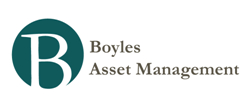Gary Klein on Insight
Found via Simoleon Sense.
What's the tradeoff between people using their experience (people using the knowledge they've gained, and the expertise that they've developed), versus being able to just follow steps and procedures?
We know from the literature that people sometimes make mistakes. A lot of organizations are worried about mistakes, and try to cut down on errors by introducing checklists, introducing procedures, and those are extremely valuable. I don't want to fly in an airplane with pilots who have forgot their checklists, and don't have any ways of going through formal procedures for getting the planes started, and handling malfunctions, standard malfunctions. Those procedures are extremely valuable, and I don't doubt any of that. The issue is how does that blend in with expertise? How do people make the tradeoffs when they start to become experts? And does it have to be one or the other? Do people either have to just follow procedures, or do they have to abandon all procedures and use their knowledge and their intuition? I'm asking whether it has to be a duality. I'm hoping that it doesn't and this gets us into the work on system one and system two thinking.
System one is really about intuition, people using the expertise and the experience they've gained. System two is a way of monitoring things, and we need both of those, and we need to blend them, and so it bothers me to see controversies about which is the right one, or are people fundamentally irrational, and therefore they can't be trusted? Obviously system one is marvelous. Danny Kahneman has put it this way, "system one is marvelous, intuition is marvelous but flawed." And system two isn't the replacement for our intuition and for our experience, it's a way of making sure we don't get ourselves in trouble.
…..
Another aspect of tacit knowledge is our mental models of how things work. Mental models are just the stories, the frames that we have to explain causal relationships: if this happens, that will happen, and that will happen, and we build these kinds of internal representations, these mental models about how things work.
A lot of people in New York have much more sophisticated mental models about the way the financial system works than they did back in 2006. After the meltdown in 2007 and 2008, there's a much better sense of where Wall Street comes in, how it helps, how it interferes, how perverse incentives come into play. People are much more sophisticated about the interplay of those kinds of forces. They've learned about the forces, and how they connect to each other. They can't tell you, they can't draw an easy diagram, but there's a level of sophistication that many people have that they didn't have before, and that's another aspect of tacit knowledge.
…..
I think helping people to arrive at insights isn't a question of pushing the insights on the people, or trying to explain it in words as much as helping people to gain the experience so they can see the inconsistency for themselves, then all of a sudden the mental model will shift naturally and easily, and to me that's a gift that good teachers have, to be able to help the people who they're trying to support. They're trying to enlighten their students or colleagues to gain those insights.
- Maximizing The Experience Of The People Who Have The Most Aptitude And The Most Determination As Learning Machines...
From Poor Charlie's Almanack: Another idea that I found important is that maximizing non-egality will often work wonders. What do I mean? Well, John Wooden of UCLA presented an instructive example when he was the number one basketball coach in...
- Missing The Forest For The Trees...
A few related quotes... From Garrett Hardin in Filters Against Folly (a book Peter Bevelin mentioned as one of the two things he re-reads every year in his 2007 interview): It is unfortunately true that experts are generally better at seeing their...
- Charlie Munger: The Importance Of Multiple Mental Models
From Poor Charlie's Almanack, and what I think is the single most important idea I carry with me when it comes to going through life: You must know the big ideas in the big disciplines and use them routinely--all of them, not just a few. Most people...
- The Wsj Interview With Robert Shiller
Link to interview: Robert Shiller's Nobel KnowledgeQ: One theme that runs through your work is that people tend to make mistakes over and over again. That's quite different than what I learned in college economics—that people are rational. How...
- Don’t Blink! The Hazards Of Confidence - By Daniel Kahneman
We often interact with professionals who exercise their judgment with evident confidence, sometimes priding themselves on the power of their intuition. In a world rife with illusions of validity and skill, can we trust them? How do we distinguish the...

